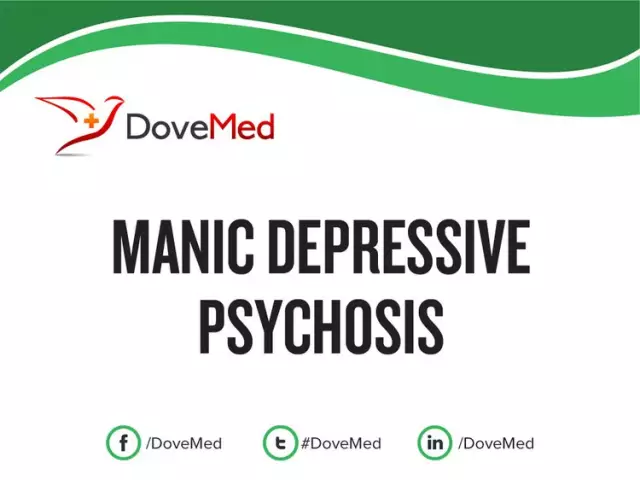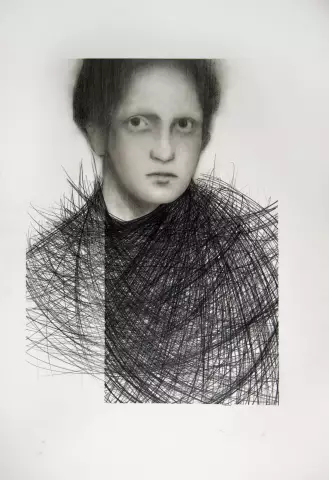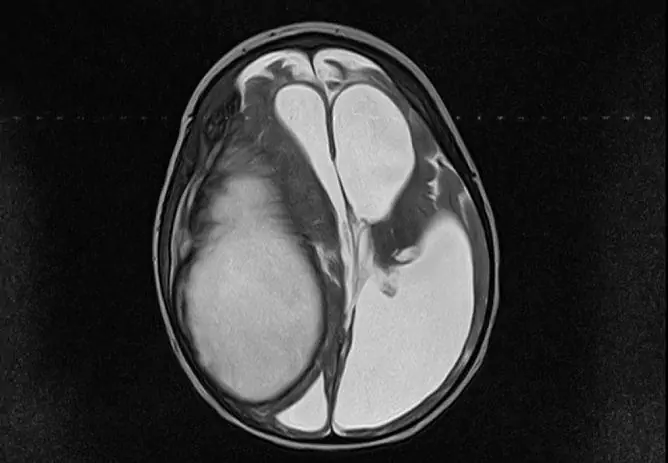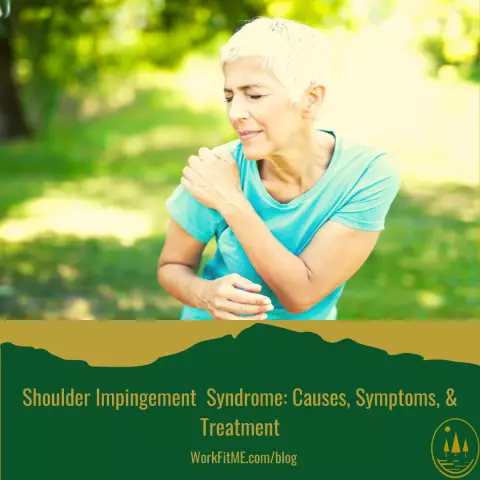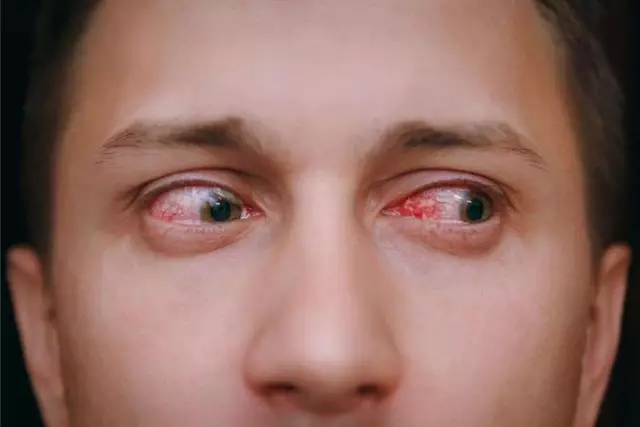- Author Rachel Wainwright wainwright@abchealthonline.com.
- Public 2023-12-15 07:39.
- Last modified 2025-11-02 20:14.
Affective insanity
General characteristics of the disease

Manic-depressive psychosis is a complex mental illness that manifests itself in two states that are polar in their psychopathic characteristics: mania and depression. Usually, the patient has a periodic onset of only one of the affective states, and in the interval between them the patient is in a state of intermission or interphase. The periods of exacerbation of manic-depressive psychosis are often called phases or psychotic episodes. With a sharp change in one of the polar states to another, the disease acquires the most severe mixed form with symptoms of manic-depressive psychosis in both phases.
Manic-depressive disorder is also called bipolar disorder. Its softened less pronounced form is called "cyclotomy". Symptoms of manic-depressive psychosis are 3-4 times more likely to be diagnosed in women. The prevalence of the disease is approximately 0.5-0.8% (an average of 7 patients with manic-depressive psychosis per 1000 people).
Causes of manic-depressive psychosis
The disease has an autosomal dominant mode of inheritance and is more often transmitted from mother to child. There is also a theory that the predominance of one of the two possible affective states of manic-depressive psychosis, be it mania or depression, is caused by different genes. Differential genetic diagnosis of the causes of manic-depressive psychosis is currently not available in medicine.
The cause of manic-depressive psychosis at the physical level is a malfunction of the higher emotional centers located in the subcortical region. It is believed that disturbances in the processes of excitation and inhibition in the cerebral cortex lead to the development of the clinical picture of the disease. The role of various environmental factors - relationships with others, stress, etc. - can be considered only as a concomitant cause of manic-depressive psychosis, but in no way the main provoking factor.
Symptoms of manic-depressive psychosis
Polar affective states of the disease are characterized by a different set of features. The symptoms of manic-depressive psychosis of the manic type include an unmotivated elevated mood of the patient, his increased motor and speech activity. Patients with symptoms of this type of manic-depressive psychosis talk a lot, joke, laugh, take on a lot of things, but due to the inability to concentrate, any of their attempts at activity is unproductive.
An exacerbation of manic-depressive psychosis of the first type can last from several weeks to six months, and all this time the patient will be subject to sudden leaps of ideas and hobbies: new acquaintances, casual sex, extravagant acts, alcohol abuse, wastefulness, etc. Another important symptom of this form of manic-depressive psychosis is the complete absence of critical thinking in a person. He is not able to really assess his capabilities, is inclined to extol his achievements, does not consider himself sick and therefore does not agree to undergo procedures or take medications.
The depressive form of the disease is manifested by a different set of symptoms. A patient with symptoms of manic-depressive psychosis of the second type is apathetic, indifferent to everything. The faces of such patients have a constant mournful expression, their speech is quiet, without emotions, movements are slowed down. Patients with symptoms of manic-depressive psychosis of this form often fall into a depressive stupor - a condition characterized by mental anesthesia, a complete loss of all feelings and needs, up to the primary ones: eat, drink, go to the toilet, wash.
The symptoms of manic-depressive psychosis of the second type also include thoughts of suicide. The world seems to the patient uninteresting, life is aimless, so he tries to end it and at the same time shows maximum ingenuity, deceiving others. On the physical level, the symptoms of manic-depressive psychosis are manifested by feelings of heaviness in the chest and breathing problems.
Diagnosis of manic-depressive psychosis
Differential diagnosis of manic-depressive psychosis is usually carried out with all other types of mental disorders: various forms of neuroses, schizophrenia, psychosis, psychopathies, depression, etc. To exclude the likelihood of organic brain damage as a result of trauma, infection or intoxication, a patient with suspected manic-depressive psychosis is sent for X-ray, electroencephalography, and MRI of the brain.
An erroneous diagnosis can lead to the appointment of the wrong treatment and to the aggravation of the form of the disease, as its consequence. Many patients, unfortunately, never receive appropriate treatment, since some of the symptoms of manic-depressive psychosis are quite easily confused with seasonal fluctuations in a person's mood.
Manic-depressive psychosis treatment

Treatment of manic-depressive psychosis with manic states involves taking antipsychotic drugs based on chlorpromazine or levomepromazine. These drugs stop agitation and produce a pronounced sedative effect. Lithium salts and haloperidol are additional components of treatment for manic-depressive psychosis. These drugs are taken under the strict supervision of a physician due to the likelihood of developing a serious complication of therapy - neuroleptic syndrome. It manifests itself in movement disorders, limb tremors and general muscle stiffness.
Antidepressants are actively used in the treatment of manic-depressive psychosis with predominant depressive states. To achieve the fastest possible therapeutic effect, an intensive course of drugs with an accelerated increase in drug doses is usually prescribed, so treatment of depression should not be postponed. The termination of a depressive attack in the treatment of manic depressive psychosis is achieved by a sudden interruption of the course of therapy at high doses and the appointment of diuretics. For the treatment of manic-depressive psychosis of a protracted form, sessions of electroconvulsive therapy are used in combination with unloading diets, medical fasting, and sometimes sleep deprivation for up to several days.
To prevent psychotic episodes, normotimics are prescribed - the so-called mood stabilizers. Long-term systemic use of these drugs can significantly reduce the severity of symptoms of manic-depressive psychosis and delay the onset of the next phase of the disease as much as possible.
YouTube video related to the article:
The information is generalized and provided for informational purposes only. At the first sign of illness, see your doctor. Self-medication is hazardous to health!

